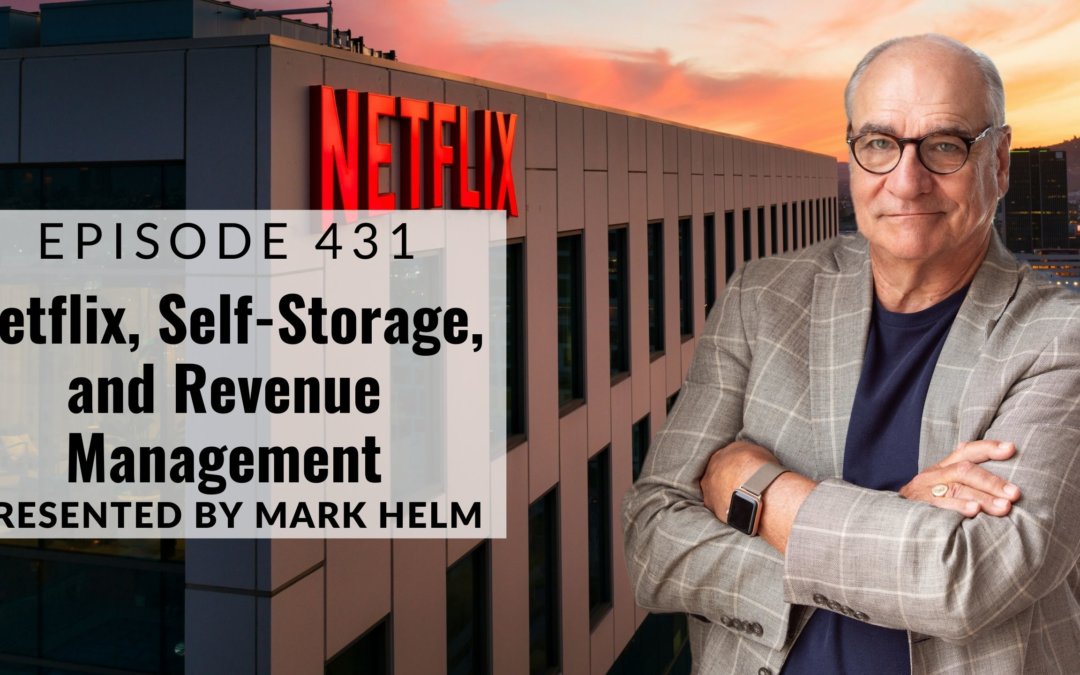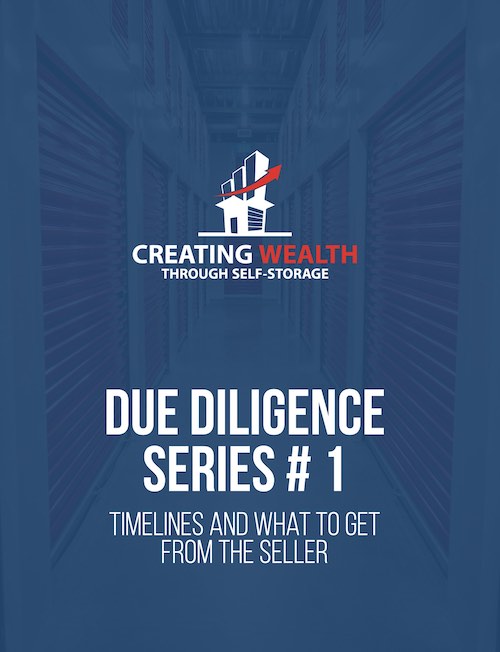Go with me for a minute. We will discuss self-storage brand loyalty, self-storage revenue management, and customer value.
But let’s start with Netflix.
I saw Netflix on my credit card statement yesterday, and it got me thinking.
Netflix is a monthly subscription model.
Our self-storage rental agreement is a monthly subscription model.
In both cases, customers give the vendor their credit card number, and once a month, it is run in exchange for a needed product or service.
Customers in both situations can stop paying any time they want to.
My Netflix charge last month was $24.23.
I think it has gone up once in the past few years by very little. I can’t remember what I initially paid when I first subscribed, but I think it was around $20.
And that was years ago.
Now, the streaming platform business is a very competitive space. There are multiple streaming services one could choose from.
The reality is I don’t know if there is a cheaper one, a better one if I am totally overpaying, or if I have a great deal.
It just is easy. Once a month, a small bill. I watch what I want when I want, and my Netflix bill stays off my radar screen pretty much.
I rented a 10 x 10 in a REIT property last year. I did it (1) to check out the competition and (2) because it is a block from one of my offices.
It was $105 when I rented it. Now, I am paying over $180.
The self-storage space is competitive, just like the streaming space. The “revenue management” model for this monthly subscription is to have a teaser rate that gets people in the door and then raises their rent.
It’s harder to move out than to cancel an online subscription.
When I ask people who use this “revenue management” model how far the rent should go up, I usually get one of two answers.
Answer one is something like “…as much as you can” or “as much as they will pay.”
Answer two is something like “…whatever the algorithm says.”
I know I should move out of my REIT storage unit, but I am just really curious as to when the “revenue management” abuse will end.
So, we have two crowded spaces, streaming services and self-storage. Both have a monthly subscription but radically different approaches to “revenue management.”
Which one do you like better?
I may be speaking for Netflix, but I think they are trying to get loyal customers who will remain because they know what to expect.
I know what to expect as a service, and I know their pricing will probably not adjust constantly in the future.
Yes, it goes up every now and then. Even if when it went up, it was just a few percent. I certainly did not think of leaving every time I received that notice.
I guess you would say I am a loyal customer, and if anyone asks me about Netflix, I would say I would recommend it. My experience has been great. I watched “Receiver “(a sports documentary last night, and I love their “Full Swing” series) and thought they do a really good job in behind-the-scenes sports reporting.
Now, with my REIT unit, it does not surprise me to get a 15% or so price increase multiple times a year.
I think there is something to be said for transparency and treating customers the same.
In my REIT unit, the longer I am there, the more I pay. Tenants who have been the most loyal pay the highest rate.
Now, if asked, I would tell a friend to avoid this company and try to find one that doesn’t use dynamic pricing.
With my Netflix account, I am not worried about being taken advantage of.
Think about different industries.
How would you rate cell phone service providers for being fair? Do you get brought in by one rate and quickly pay a different one?
How often do you switch?
As you can tell, I have very little tolerance for the pricing abuse I am experiencing. It’s borderline abusive, and I feel taken advantage of.
Now, that is just my experience, and it doesn’t mean I am correct; this is a bad company.
But then again, it might mean they are a terrible company. It depends on what is important to you.
I can move, but I am really trying to see if there is a top end where they actually stop.
I would bet there isn’t.
I am more convinced now than ever that, in the long run, having a fair rate and pricing strategies create longer customer stays, which creates higher average value per customer, a better customer experience, and is much better for our brand.
In other words, fair pricing creates real value.
What do I mean by fair pricing?
In essence, I think fair pricing is simple. Customers are equal.
Now, I do have a “revenue management model.”
However, it is unit-centric rather than customer-centric.
In other words, all customers are equal, but not all units are. Some 10 x 10’s are more convenient to the office, or the gate, or the elevator. They are more expensive, and customers can choose to pay more.
In our culture, customers are equal. We don’t squeeze longer-staying tenants more than new arrivals. But new arrivals are going to pay at, or very close to, what existing customers pay.
Call me old-fashioned, but honesty and transparency usually win out over the long run, in my experience.
If the customer abuse I am experiencing continues, I would not be surprised if enough customer complaints create some pricing regulations state by state.
It happened with late fees in our industry.
Many states have now defined late fees because of the abuse some of us in the industry have perpetrated on customers. In some cases, daily late fees that within a month or two equaled or surpassed the actual unit rental rate.
“Ussery” was the word many courts used.
I wonder what the word is for what I am going through with my “revenue management” experience with my unit.
Anyway, enough whining.
What are your revenue management strategies?
I would be interested in your thoughts on this, especially if you disagree.
All I know is I will be happy when I leave my REIT unit and sad if I have to leave Netflix.
Share your thoughts below, and thanks for letting me vent about this.



